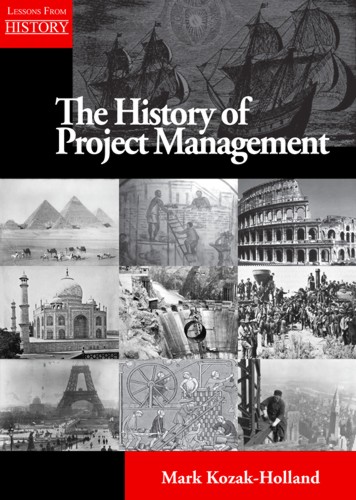LFH Overview
Managing Complexity in Projects
Complexity Management in Projects
Contemporary best practices in project management and examples from historical case studies
Summary Description of WorkshopAs projects become more complex, managing project complexity (uncertainties, ambiguities, and unexpected changes) is becoming increasingly more important in ensuring the success of a project. The inability to do so in complicated and complex projects usually leads to poor results or even failure. Without the use of complexity management throughout the course of a project, unknowns are not turned into knowns or even identified, that result in unexpected outcomes and potentially having a severe impact on the project. Even though most project managers are aware of complexity in projects they may not be aware of how it can occur in a spectrum of different scenarios which cover both best case projects (simple or complicated) and worst case projects (chaotic or crisis). This workshop examines how to manage complexity in a spectrum of projects, that goes beyond a quick identification of unknowns. This workshop augments contemporary best practices in project complexity management with historical case studies to exemplify the spectrum of project complexity, and uses multiple case studies namely from the Ancient Romans - the Siege of Alicia, Roman Colosseum, Pantheon, and Hadrian's Wall. These case studies have rarely been associated with complexity management in projects and this is what makes this course so unique. Through these case studies the workshop highlights how complexity was managed in these projects by following the project event-and-decision timeline to better understand how complexity and uncertainties were managed using different response strategies based on the categories of complexity. Through exercises and video samples the workshop attendees, working in groups, will be given a chance to use their skills to analyze core problems within the projects, play out what-if-scenarios, and discuss the significance of complexity in these projects. The analysis allows attendees to draw out patterns, techniques, and make comparatives to today’s projects. The workshop draws on research into the publication The History of Project Management which traces the development of project management, from the ancient world through to the industrial revolutions of the last 300 years. These projects were selected because of their impact on subsequent projects and project management. Who Should Attend?Entry/Intermediary level of experience for project managers, project leaders, team leaders and general business professionals. |
|
Learning ObjectivesUpon the successful completion of this workshop, attendees will be able to:
|
|
The Benefits of the WorkshopThe workshop analysis is done through the modern lens of project management and provides valuable insights into how these projects were planned and executed. The workshop examines common emergent patterns across the projects, the best practices and techniques used, and then draws out practical project lessons to apply to today’s projects. |
|
|
The workshop is based on the following publication. Note: This course conforms to the internationally recognized standards of the Project Management Institute (PMI®). You will receive 8 PDUs (professional development units) upon completion. |
|






